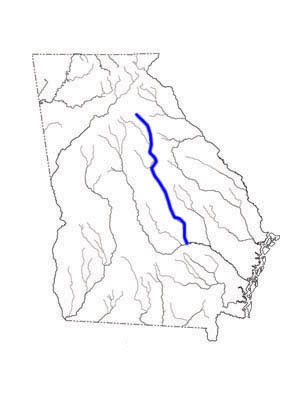Whitman — "Song of Myself"
-
I CELEBRATE myself, and sing myself,
And what I assume you shall assume,
For every atom belonging to me as good belongs to you.
This opening section of the first "paragraph" (what Whitman called the 52 numbered areas in the poem) begins with I and ends with you. The whole poem does the same. Here's the final stanza of the 52nd paragraph:
Failing to fetch me at first keep encouraged,I and you are the two main characters in the poem, and Whitman is constantly trying to break down the barriers between those two. While it's easy to see I as Whitman, or some surrogate for him, you is a bit more complicated. Think of it as a series of concentric circles. The smallest circle is just you, the individual reader. A much larger circle is the entire population of the US, and an even larger one is everyone in the world. The poem works on all three levels at all times. So it can be just something initmate, shared between two individuals, or it can be a grand public address and call to action.
Missing me one place search another,
I stop somewhere waiting for you.
What's up with those atoms?
Because they are so long lived, atoms really get around. Every atom you possess has almost certainly passed through several stars and been part of millions of organisms on its way to becoming you. We are each so atomically numerous and so vigorously recycled at death that a significant number of our atoms – up to a billion for each of us, it has been suggested – probably once belonged to Shakespeare. A billion more each came from Buddha and Genghis Khan and Beethoven, and any other historical figure you care to name. (The personages have to be historical, apparently, as it takes the atoms some decades to become thoroughly redistributed; however much you may wish it, you are not yet one with Elvis Presley.)
-- Bill Bryson, A Short History of Nearly Everything
---- 2004 winner, Aventis Prize for best general science book
---- 2005 winner, EU Descartes Prize for science communication
But how many atoms and/or cells do I have in me?
Average adult American, 20 years and older:
| Height | Weight | |
| Men | 5 feet, 9 inches | 195 lbs. |
| Women | 5 feet, 4 inches | 166 lbs. |
| Avg. (51%f, 49%m) | 5 feet, 6 inches | 180 lbs. |
Number of atoms in the average adult American body:
8,200,000,000,000,000,000,000,000,000
8.2 octillion
1 octillion = 1 thousand trillion trillion, or 1027
Latest estimate of the number of stars in the universe:
100,000,000,000,000,000,000,000,000,000
100 octillion
Number of cells in the average adult American body:
40,800,000,000,000
40.8 trillion
Latest estimate of the number of stars in the Milky Way galaxy:
100,000,000,000
one hundred billion (.1 trillion)
Latest estimate of number of trees on Earth:
3,000,000,000,000
3 trillion
And that's not all we have within us. Neil deGrasse Tyseon explains:

-
I loafe and invite my soul,
I lean and loafe at my ease observing a spear of summer grass.
The speaker tells us he is lounging and looking at a single blade of grass. He's setting us up for a big revelation, that this one single spear of grass is also him, and also you. Those atoms he just mentioned? Once he's dead, the grass will grow from his grave, and some will contain his atoms, just like you. He's full of the atoms of those who have gone before him, and now he can give those silent generations a voice. In himself, he holds the past, the present, and the future, for matter is neither created nor destroyed.
We can trace those atoms to the deaths of stars, back to the Big Bang, back to the Singularity itself. That's a 14.5-billion-year past. And maybe just as long a future is ahead of them, who knows? But what we do know is that the present is here, and is the oly space in which we can act. So we need to heed his command in paragraph 46:
Shoulder your duds dear son, and I will mine, and let us hasten forth,
Wonderful cities and free nations we shall fetch as we go.
-
One of the Nation of many nations, the smallest the same and the largest the same,
A Southerner soon as a Northerner, a planter nonchalant and hospitable down by the Oconee I live,
A Yankee bound my own way ready for trade, my joints the limberest joints on earth and the sternest joints on earth,
A Kentuckian walking the vale of the Elkhorn in my deer-skin leggings, a Louisianian or Georgian,
While his time in New Orleans was not very pleasant, and his experiences as a volunteer in a Civil War Hospital did nothing to endear the idea of "The South" to him, Whitman nevertheless mentions Georgia favorably, twice, in this poem. In an 1890 letter to a fellow poet and critic who was pressing him about the homoerotic content in his poetry, Whitman said that he had fathered six illegitimate children, and had "one living southern grandchild, fine boy, who writes to me occasionally." In that same letter he noted that his "times South . . . have all been jolly, bodily, and probably open to criticism."
In the lines above, from paragraph 16, Whitman has a nonchalant and hospitable planter living near the Oconee River represent all Southerners. That very specific occupation, location, and set of personal characteristics is coupled with the image of a Northerner that is nowhere near as detailed, and is in fact contradictory. In the following lines Whitman lists 10 states or territories along with two areas in Canada. But Georgia is the only place mentioned twice.

The Oconee River near Athens, GA
 Map of the Oconee River |
 The Oconee River in Oconee County |